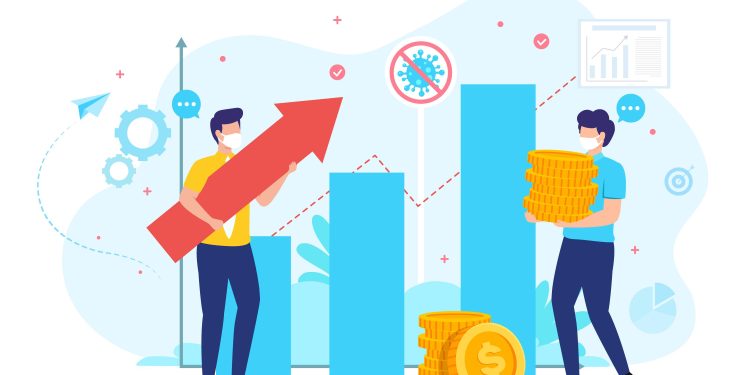You’ve heard all the good news about credit cards as 2021 closes out. Revolving debt volumes are up, credit losses are down, and people are applying for credit cards. Now, let’s look at a significant threat that can turn 2022 into a credit card mess: Inflation.
If you are working in a head office for a credit card company, perhaps Tryon Street in Charlotte or Park Avenue in New York, or anywhere else, you are probably starting to worry about the impact of inflation.
Yes, the increase in revolving debt is good. But are new cardholders applying for credit cards because credit card marketing is so good, or is it a sign of consumers starting to prepare for the worst?
Today, we tie together a few sets of numbers, including a respected consumer survey, the perspectives of CPAs, and the OECD.
Let’s start with the Gallup Poll, a well-respected source. A recent survey scoped out the impact on the household budget:
45% of Americans report financial hardship triggered by increased prices
10% describe the hardship as threatening their current standard of living
Seven in 10 lower-income Americans experiencing hardship
Then, consider a survey by the Association of International Certified Professional Accountants. Their recent survey polls “chief executive officers, chief financial officers, controllers and other certified public accountants in U.S. companies who hold executive and senior management accounting roles.” And they say:
Only 41% of business executives expressed optimism in the U.S. economy over the next 12 months, down from 51% last quarter and 70% in the second quarter. Survey takers also took a dimmer view of their organization’s prospects, with 58 percent expressing optimism, down seven percentage points from the third quarter.
Inflation is now the top concern cited by survey respondents, nudging out the limited availability of skilled personnel. The tight labor market is a factor in an anticipated increase in salary and benefit costs, which are expected to rise 4.3% over the next 12 months, the fastest rate since before the Great Recession and a boost from the 3.7% projected rate last quarter.
So, on the one hand, we expect worsening household confidence; on the other hand, we have financial managers losing faith in the recovery.
Now, add in sentiment on COVID and the recent take-up of the Omicron variant. For that, we will look at Pharmaceutical Technology’s recent story, which headlines: “Omicron threatens to exacerbate inflation and supply shortages – leading macroeconomic influencers.” The report discusses concerns by the Organization for Economic Cooperation and Development (OECD), where they say:
Nouriel Roubini, Professor Emeritus of Economics at New York University’s Stern School of Business, and chief economist at the Atlas Capital Team, shared an article on the OECD stating that the Omicron coronavirus variant is likely to intensify the supply-and-demand imbalances that are slowing growth and increasing costs.
The Paris-based international organization increased its inflation forecast from three months ago, claiming that the new variant could delay the world economy’s recovery. As a result, the most important policy of nations should be to accelerate Covid-19 vaccinations globally.
The OECD, comprising largely richer member nations, raised its inflation forecast across the G20 to 4.4% for 2022 from the earlier forecast of 3.9% in September.
Credit card managers need to temper their optimism about 2022. While it appears that credit card marketing is on a roll, inflation can upset the household budget in a snap. Moreover, with a persistent pandemic on top of inflation and an upward interest rate market, 2022 will have some challenges.
Overview by Brian Riley, Director, Credit Advisory Service at Mercator Advisory Group









